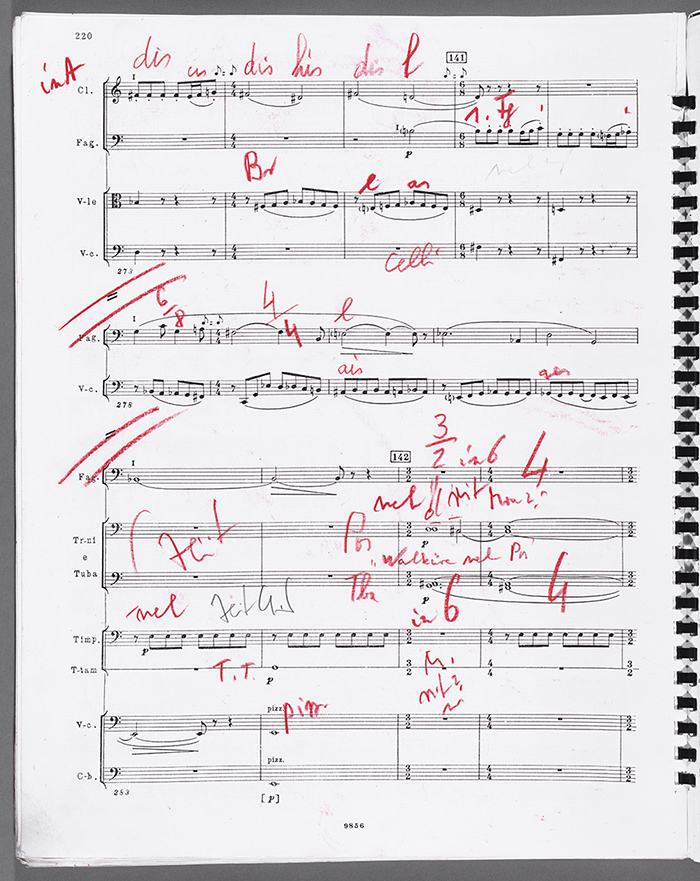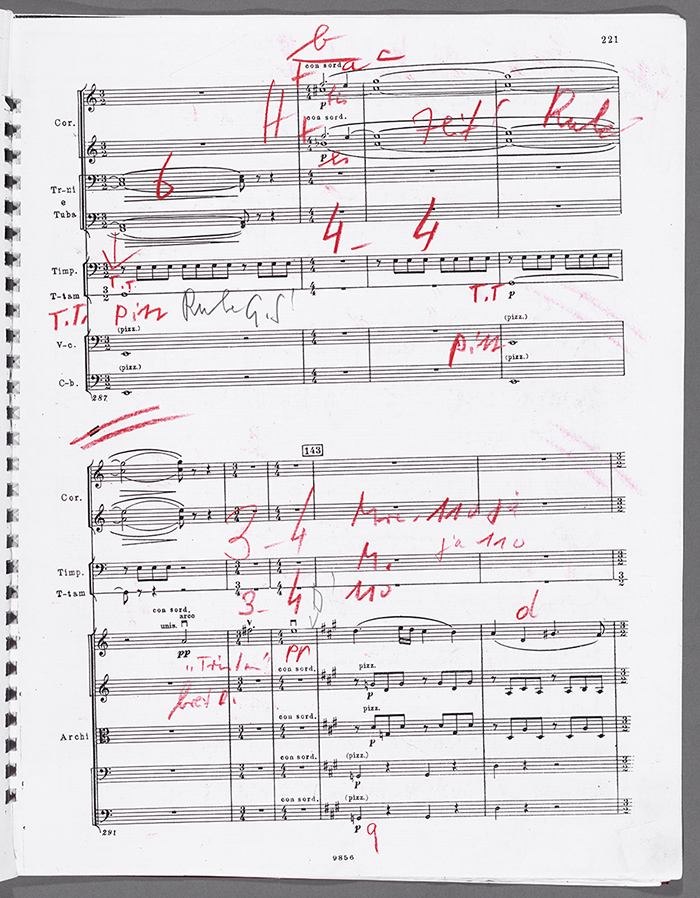Solti came to the Shostakovich symphonies late in his career. “I was convinced that anyone who could have written such relatively progressive music in the Soviet Union must have been politically compromised with the regime…When I realized how wrong I had been, I began to conduct more of his music.” Solti conducted and recorded the composer’s First, Fifth, Eighth, Ninth, Tenth, Thirteenth, and Fifteenth symphonies. Of the Thirteenth Symphony, “Babi Yar,” settings of poems by Evgeny Yevtushenko that speak out against dictatorship and oppressive government, Solti observed, “[it] made me realize that a musician has a responsibility not to remain silent about political oppression. One cannot close one’s eyes to what goes on in one’s own country and around the world” (Memoirs, 228). Shostakovich’s Fifteenth Symphony is his last work in the genre, an end-of-life piece. In addition to including cryptic references to his own music, Shostakovich incorporates allusions to Glinka, Mahler, Rossini, and Wagner. In the fourth movement, shown here, Solti indicates a quotation of the “fate” motive from Wagner’s Der Ring des Nibelungen by writing the word “Walküre” over the passage played by trombones and tubas.
Dmitri Shostakovich. Symphony no. 15, op. 14: IV. Adagio. Perf. Chicago Symphony Orchestra. Recorded at Orchestra Hall, Chicago, March 1997 (Decca Eloquence 442 8235). Record Collection CD 39927
http://id.lib.harvard.edu/aleph/013239015/catalog



